1. The Mary Tyler Moore Show Ends with a Bang
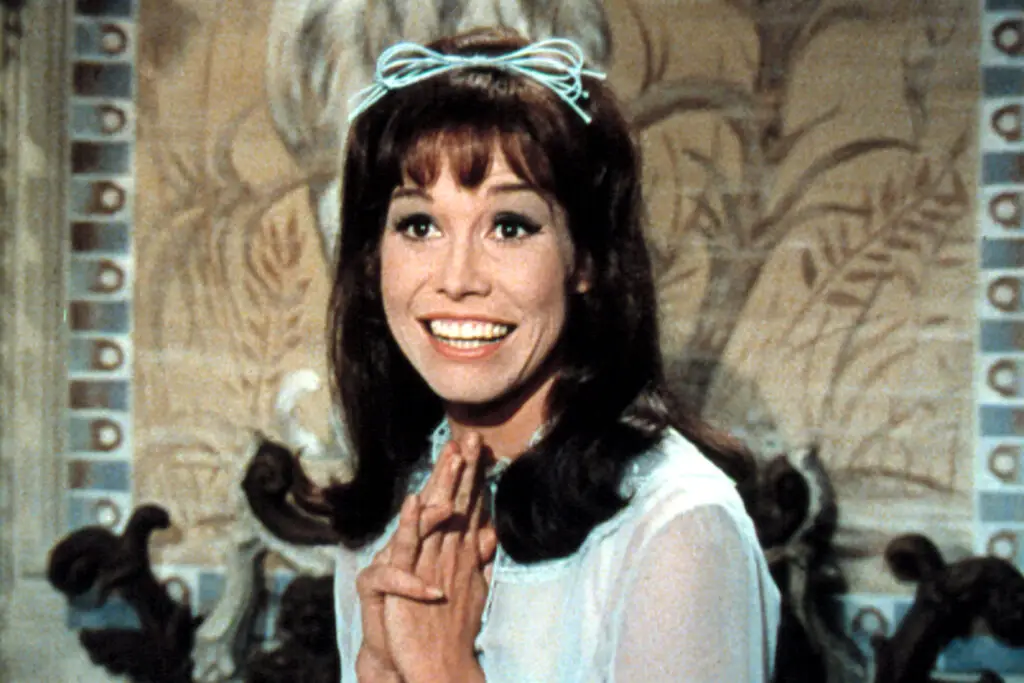
When The Mary Tyler Moore Show aired its final episode in 1977, it wasn’t just another TV finale—it was a moment that left the entire nation reflecting. The show’s last scene, where Mary Richards walks out of the newsroom for the last time, was both emotional and powerful. She leaves her workplace, surrounded by the people who had become her family over the years, but with a sense of independence that felt so fitting for the character. The moment marked a perfect end to a groundbreaking sitcom that changed how women were portrayed on television.
The real power of the finale came from the way it handled the departure of the beloved character without resorting to melodrama. Instead of a big dramatic goodbye, it was a quiet, understated conclusion. This made it resonate with viewers, as it felt genuine. The final scene, with the cast sharing a simple farewell, remains one of the most memorable TV moments from the ’70s, still being talked about as an example of how to close a show gracefully.
2. Fonzie Jumps the Shark on Happy Days
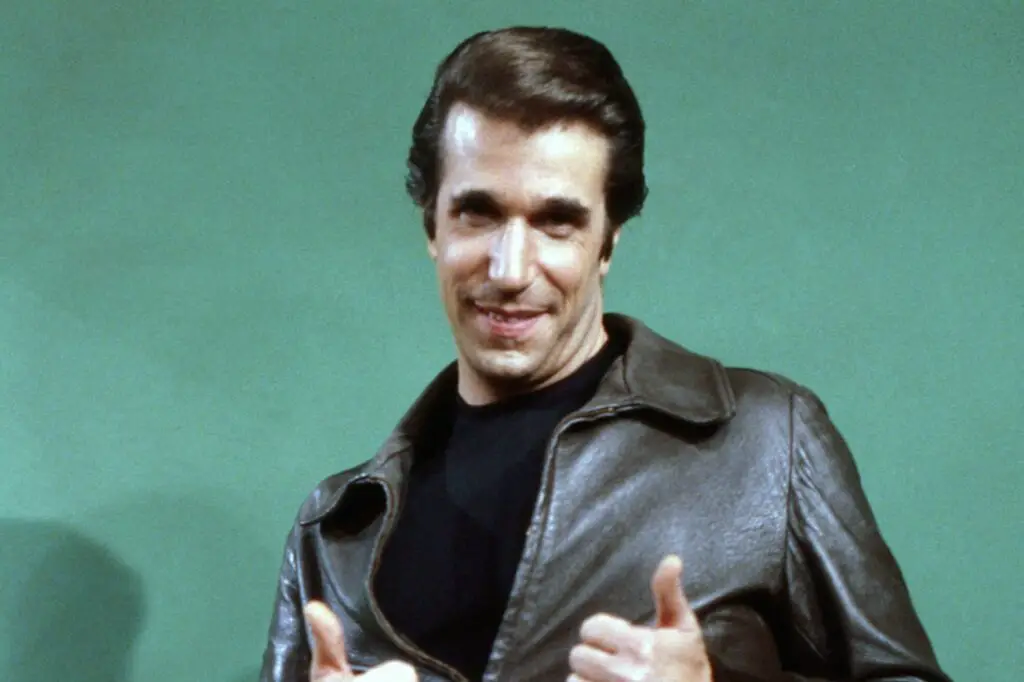
Anyone who was around in 1977 remembers when Fonzie, the iconic leather-jacketed greaser, took his daredevil stunt to the extreme. In a now-famous episode of Happy Days, the Fonz jumped over a shark while water skiing—an act that would go down in TV history. The moment became a symbol of how shows sometimes jump the proverbial shark when they begin to go too far.
Although the stunt was originally meant to showcase Fonzie’s fearless persona, it quickly became a punchline. Fans and critics alike began to use the phrase “jump the shark” to describe any show that had gone beyond its peak or lost its originality. The phrase stuck, making this moment one of the most unforgettable (and often debated) of the ’70s.
3. The All in the Family Racial Slur Incident
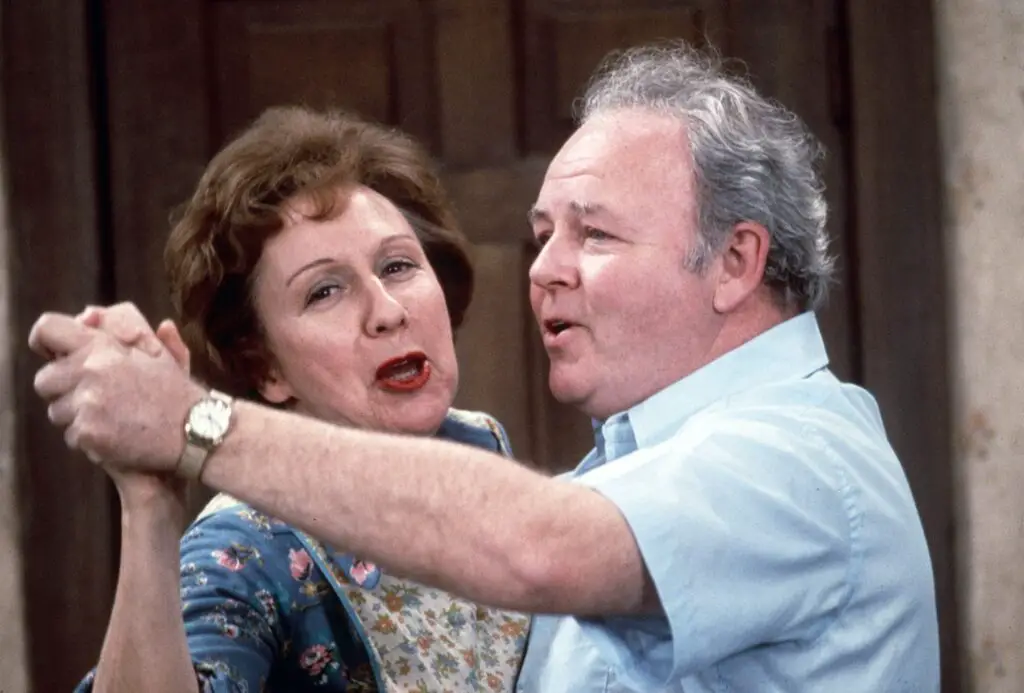
In 1971, All in the Family pushed the boundaries of television by addressing race in a way that had never been done before. During one particularly shocking episode, Archie Bunker used a racial slur that caused an uproar among viewers and critics alike. The show, which had already become known for its bold tackles of sensitive issues, wasn’t afraid to take on controversial topics, and this moment was one of its most talked-about.
The impact of this moment went far beyond just TV history. It opened up conversations about racism, prejudice, and the role of television in shaping social dialogue. It’s one of the most unforgettable moments from ’70s TV, not just because of the shock factor, but because of how it set the stage for future shows to handle tough topics with greater authenticity.
4. The Six Million Dollar Man Bionic Upgrade
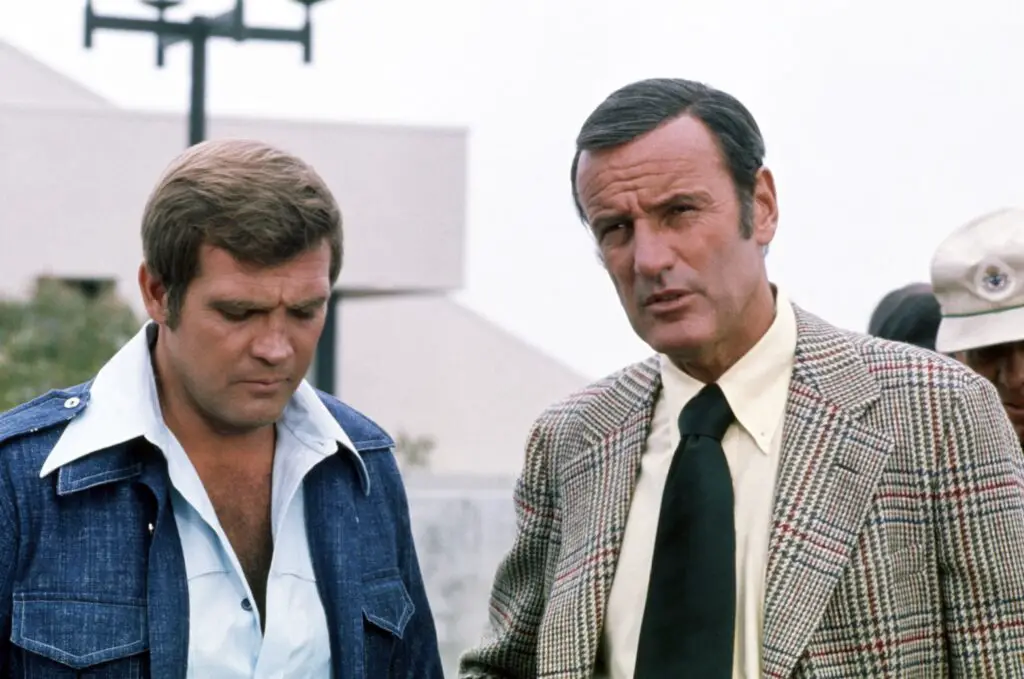
In 1974, audiences were introduced to the Six Million Dollar Man, a character who was rebuilt with bionic limbs after a near-fatal crash. The moment when Steve Austin first receives his bionic upgrade, and viewers hear the sound of his bionic eye zooming in, was revolutionary for television. It wasn’t just a moment of physical transformation—it symbolized the fusion of technology with human resilience in a way that captivated the imagination.
For years after, people mimicked the bionic sound effects and marveled at the technology. It was a pivotal moment that helped cement the ’70s as a decade of embracing the possibilities of technology, often blending science fiction with reality in an unforgettable way. That moment when Austin tests out his new abilities is something fans still fondly remember.
5. Charlie’s Angels and the Iconic “Three Angels” Moment
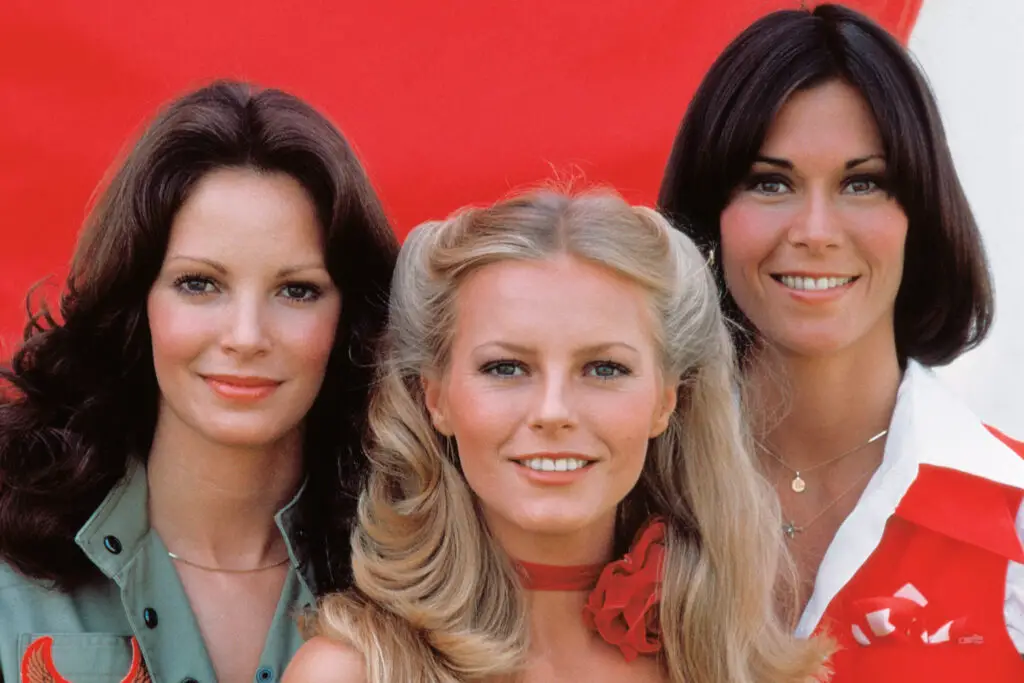
When Charlie’s Angels debuted in 1976, it quickly became a pop culture phenomenon. The show, which followed three private investigators—Jill, Sabrina, and Kelly—was a blend of action, glamour, and adventure. But one moment that stood out as unforgettable was when the Angels, in their classic jumpsuits, faced off against a group of bad guys in a dramatic fight scene. The trio working together, using their brains and beauty to bring criminals to justice, set a new standard for female empowerment on TV.
This moment resonated deeply because it offered a fresh take on women in television—strong, independent, and capable of doing everything the men could do, but in their own unique way. Fans were inspired by the Angels’ combination of brains, beauty, and bravery, making this episode one of the standout moments from the ’70s. To this day, Charlie’s Angels continues to be remembered as a show that broke barriers and changed how female characters were portrayed on television.
6. The Brady Bunch‘s “It’s a Sunshine Day” Sing-Along
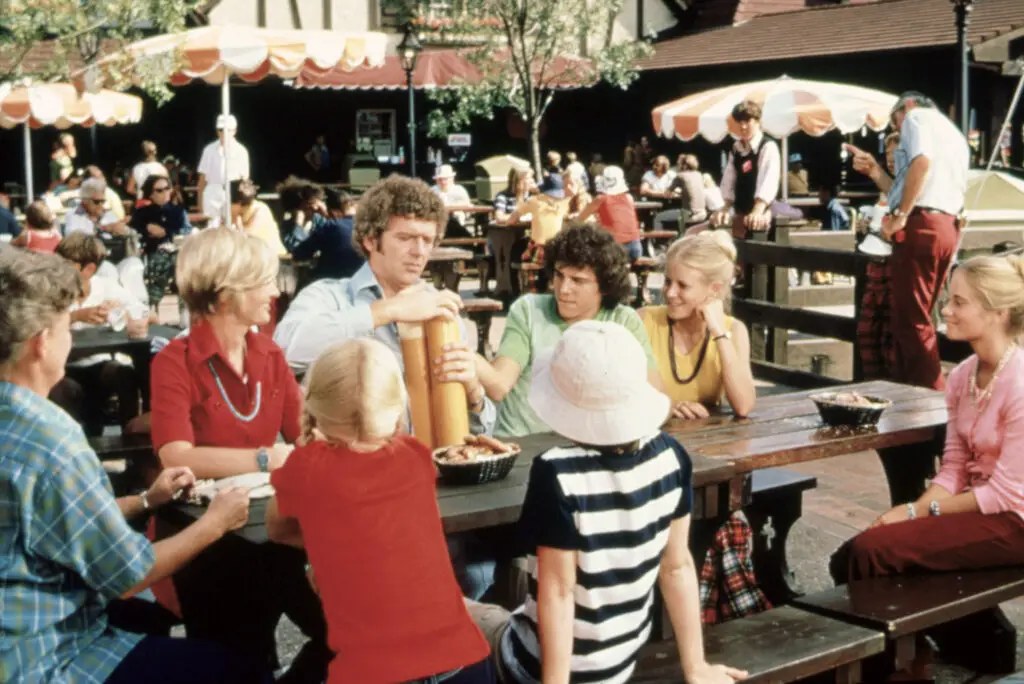
In 1971, The Brady Bunch aired an episode that featured one of the most iconic musical moments in television history. The family gathered together to sing “It’s a Sunshine Day,” and the scene became emblematic of the wholesome, feel-good vibe of the show. It was a pure moment of joy, with the Bradys harmonizing as a family, and it perfectly captured the spirit of the ’70s, when families were portrayed as tight-knit and always there for each other.
The song itself became a defining tune for the show, and fans of The Brady Bunch often look back at this scene as one of their favorites. It wasn’t just about the song—it was about the sense of unity and happiness that it conveyed. This moment remains a nostalgic favorite for anyone who grew up with the show.
7. The Roots Miniseries Shakes America
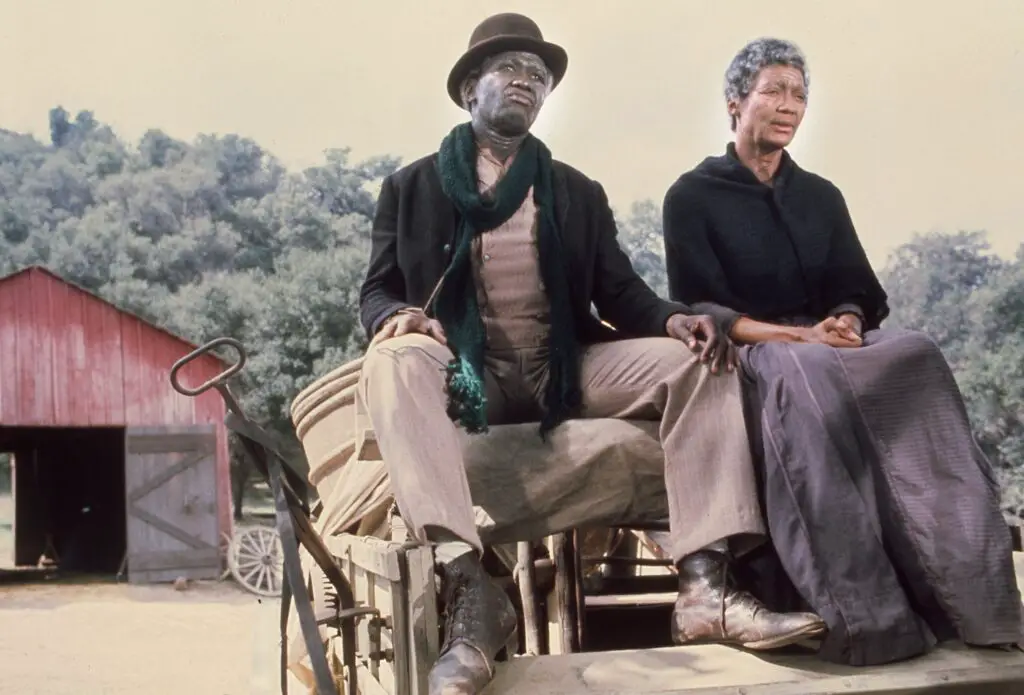
In 1977, Roots brought the story of African American history to millions of homes, and the impact it had was nothing short of monumental. The miniseries, based on Alex Haley’s book, aired over several nights and captivated viewers with its powerful storytelling. The most unforgettable moment came in the final episodes, where Kunta Kinte, played by LeVar Burton, is forced to abandon his African name and take a new one.
This powerful scene left viewers reeling, as it symbolized the brutal history of slavery and the erasure of identity. Roots was more than just a TV show; it was a cultural event that started conversations about race, identity, and history that are still relevant today. The series remains one of the most significant television moments of the ’70s, sparking discussions and inspiring future generations to continue the fight for equality.
8. The Jeffersons “Movin’ On Up”
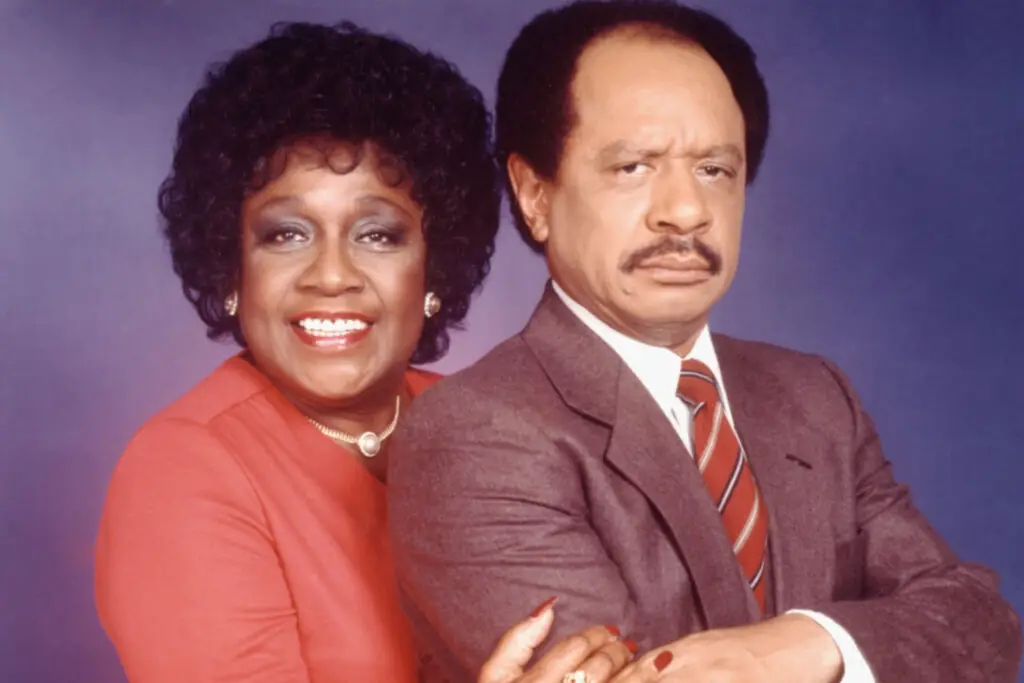
In 1975, The Jeffersons debuted, and its iconic opening theme, “Movin’ On Up,” became synonymous with the show’s success. The moment when George and Weezy Jefferson moved from their humble apartment to a luxurious penthouse symbolized the American Dream, capturing the optimism and upward mobility that the ’70s represented. It wasn’t just a catchy tune—it became an anthem for viewers who loved seeing the Jeffersons rise from modest beginnings to prosperity.
The show was groundbreaking for its portrayal of a successful African American family, a rarity at the time. This iconic moment spoke to larger societal shifts, reflecting the aspirations of many viewers in an era of change. The Jeffersons’ theme song and the family’s rise to affluence remain etched in TV history as one of the most empowering moments from the ’70s.
9. The Odd Couple‘s Hilarious “Super Bowl” Episode
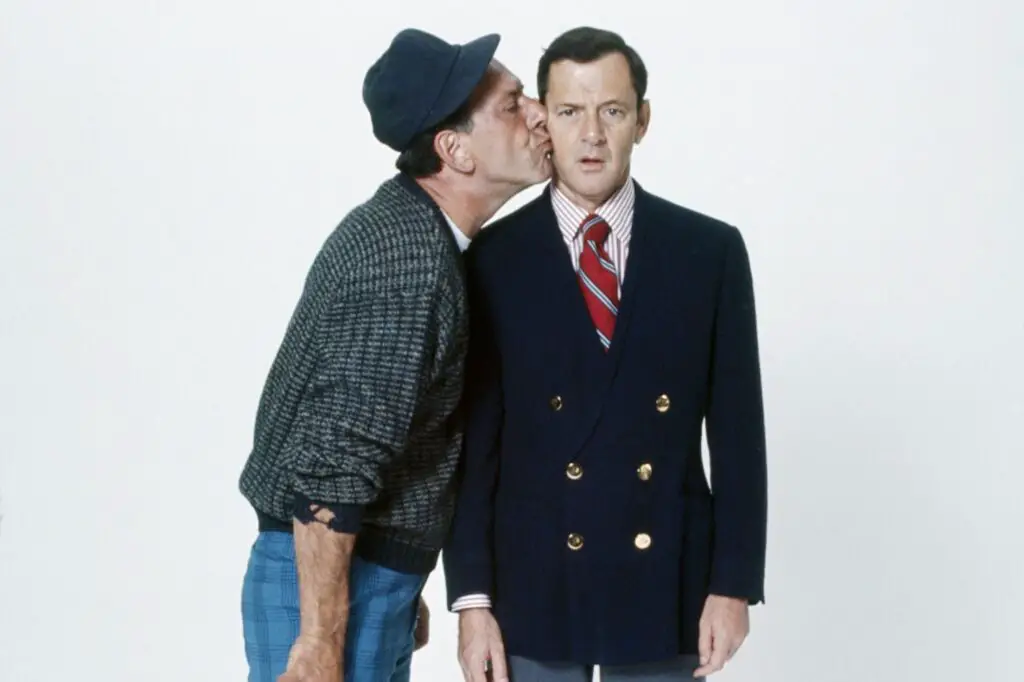
In 1973, The Odd Couple aired an unforgettable episode where Oscar Madison and Felix Unger, the mismatched roommates, ended up in a hilarious situation during the Super Bowl. Oscar, who was a huge sports fan, wanted to watch the game in peace, but Felix, ever the perfectionist, couldn’t resist cleaning and organizing during the game. The chaos that ensued, with Felix’s interruptions and Oscar’s frustration, created one of the most memorable and hilarious moments in the show’s history.
What made this scene unforgettable was the way it perfectly encapsulated the dynamics of their relationship—Felix’s obsession with cleanliness clashing with Oscar’s laid-back, carefree attitude. It was a quintessential example of how The Odd Couple’s humor came from the clash of opposites, a formula that made it one of the best sitcoms of the ’70s. The episode became a favorite, still talked about for its comedy and timeless portrayal of mismatched personalities.
10. Happy Days’ “The Fonz Gets His Own Spin-Off”
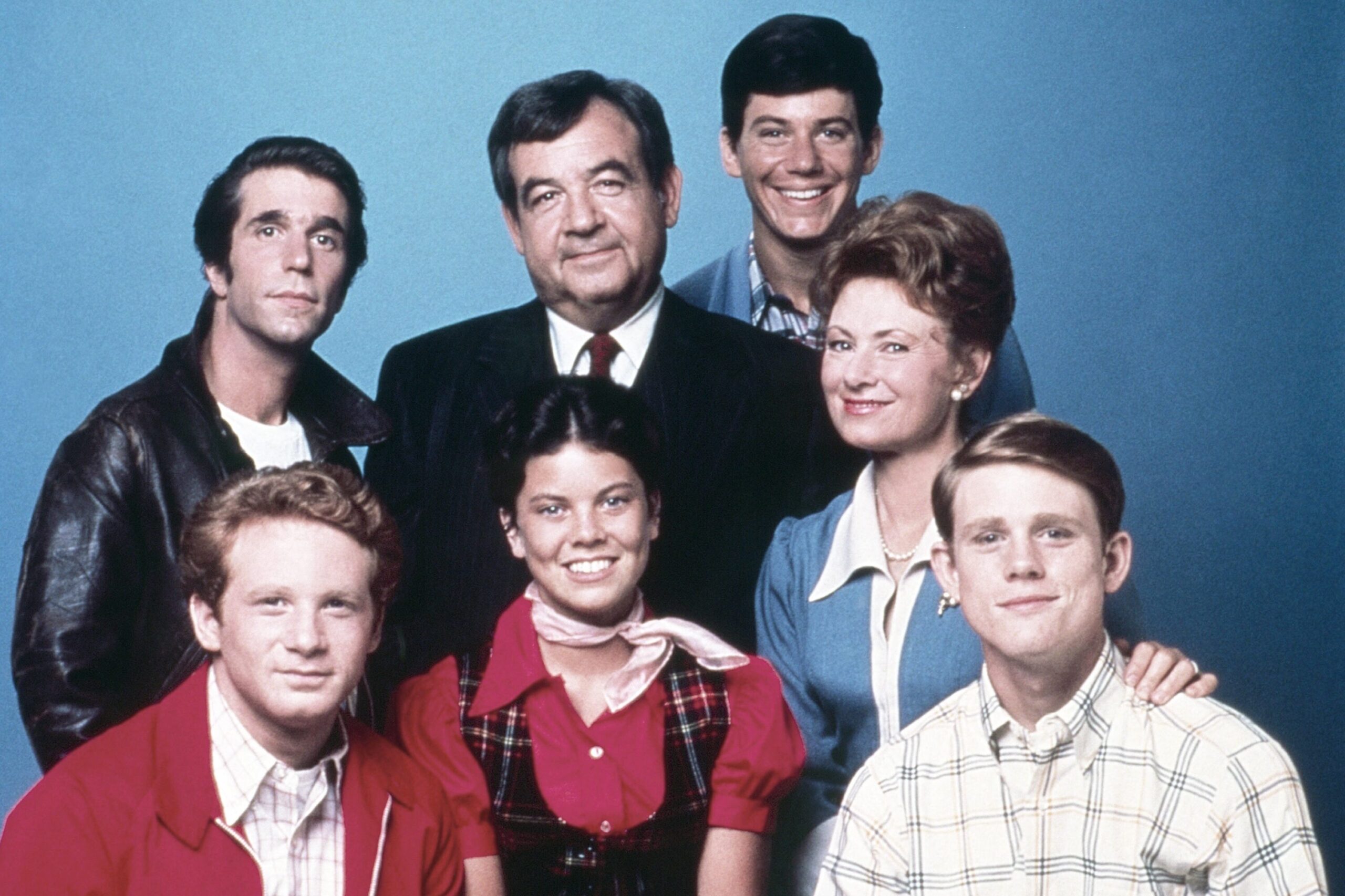
In 1977, Happy Days turned one of its most beloved characters, the Fonz, into a phenomenon. The episode in which Fonzie, the ultimate cool guy, became the center of his own spin-off series, Laverne & Shirley, was a moment that left fans buzzing. It wasn’t just about the Fonz’s signature leather jacket or his iconic “Ayyyy”—it was about the transition from a supporting character to the ultimate star. This shift in the show’s dynamic marked a new era in television, where characters became so popular they could carry their own shows.
Fans were fascinated by the Fonz’s effortless charm, and the fact that he could hold his own in a spin-off proved just how much impact Happy Days had on pop culture. It wasn’t just about the transition—it was about how television began to change, with characters breaking through the fourth wall of their original shows and becoming icons on their own. It’s a moment that solidified the Fonz as a cultural touchstone of the ’70s.
11. The Twilight Zone Returns in 1985, but the ’70s Still Influenced Its Legacy
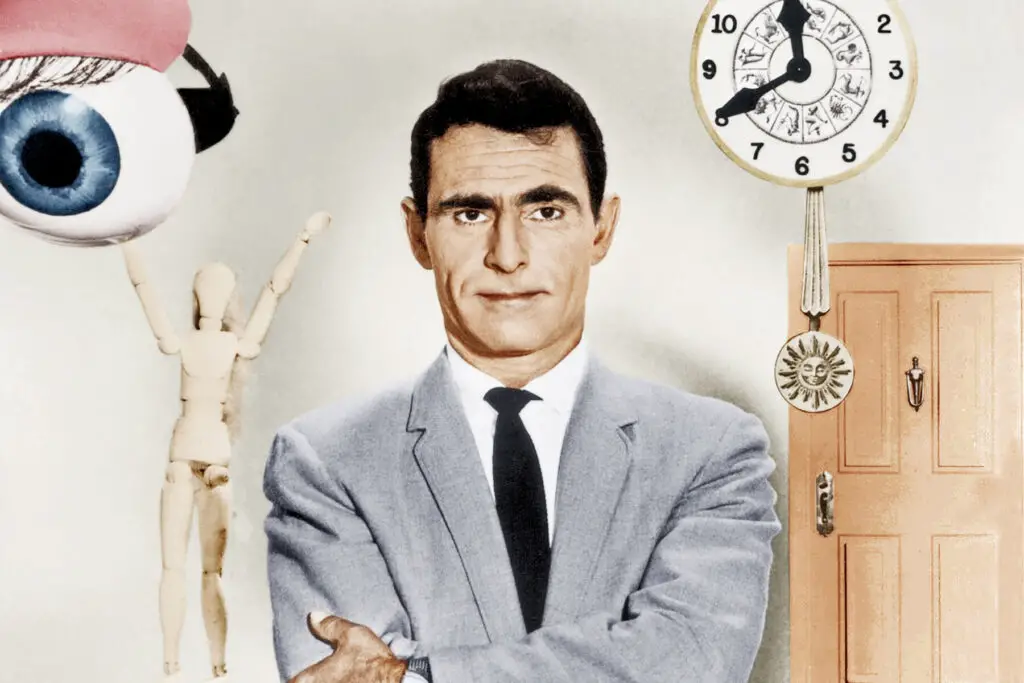
While The Twilight Zone technically ended in the early ’60s, its revival in the late ’70s was a critical moment that shaped a new generation’s view of strange and thought-provoking storytelling. In 1979, The Twilight Zone made its return, bringing with it the same eerie, mind-bending narratives that had made it a hit in the ’60s. Although the show was rebooted in the ’80s, it’s the eerie moments from the late ’70s revivals that stand out, particularly the way it dealt with themes of societal decay, personal conflict, and fear of the unknown.
The ’70s revival was not just about resuming the eerie tales—it was about exploring how the weird and surreal continued to resonate in a decade defined by social unrest and change. Its mix of nostalgia and eerie storytelling was unforgettable, as the show reminded viewers of the power of classic sci-fi to tackle contemporary anxieties. The legacy of The Twilight Zone in the ’70s helped cement its place as one of the most influential TV shows of all time.
12. Kojak’s Catchphrase “Who Loves Ya, Baby?”
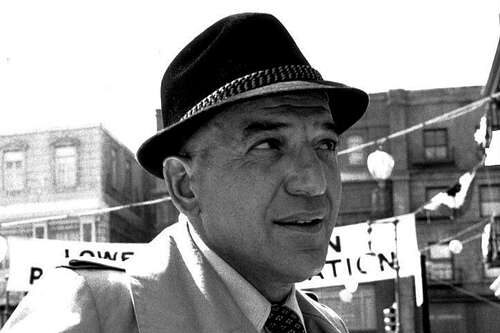
When Kojak hit the airwaves in 1973, star Telly Savalas’ portrayal of the tough, bald, but lovable detective quickly became iconic. His catchphrase, “Who loves ya, baby?” became a cultural staple and still resonates today. Savalas delivered the line with a certain swagger, making it his trademark and an unforgettable moment from the show. It wasn’t just a catchphrase—it was a reminder of how Kojak blended tough-guy persona with moments of vulnerability.
The line became so memorable that it was used in everything from jokes to commercials. It reflected how Kojak’s character could tackle tough situations while still having a soft side, making him stand out from other TV detectives of the era. That simple line captured the essence of the show and its memorable, complex protagonist, remaining a standout in ’70s TV culture.
13. The Partridge Family’s “I Think I Love You” Chart-Topping Hit
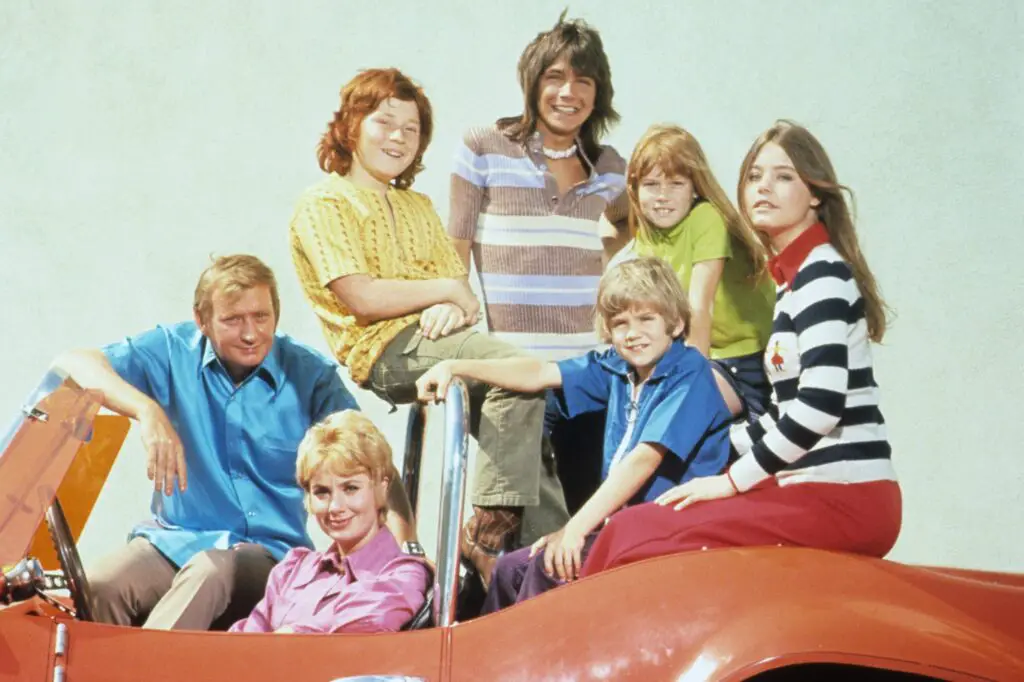
In 1970, The Partridge Family released “I Think I Love You,” a catchy, upbeat song that became an unexpected smash hit. What made this moment unforgettable was the fact that a fictional family from a TV show had a chart-topping single, which was a rare feat at the time. The song not only marked a cultural moment in the ’70s but also solidified the popularity of the show, turning David Cassidy, who played Keith Partridge, into a teen idol.
The song became synonymous with The Partridge Family, and the scene where the family records the song in the studio is still cherished by fans. It reflected the fantasy of a perfectly harmonious family and the crossover of TV characters into real-life fame, making it one of the most iconic musical moments of the decade. Even today, the song remains a nostalgic reminder of ’70s pop culture.
14. Starsky & Hutch’s “The Car Chase”
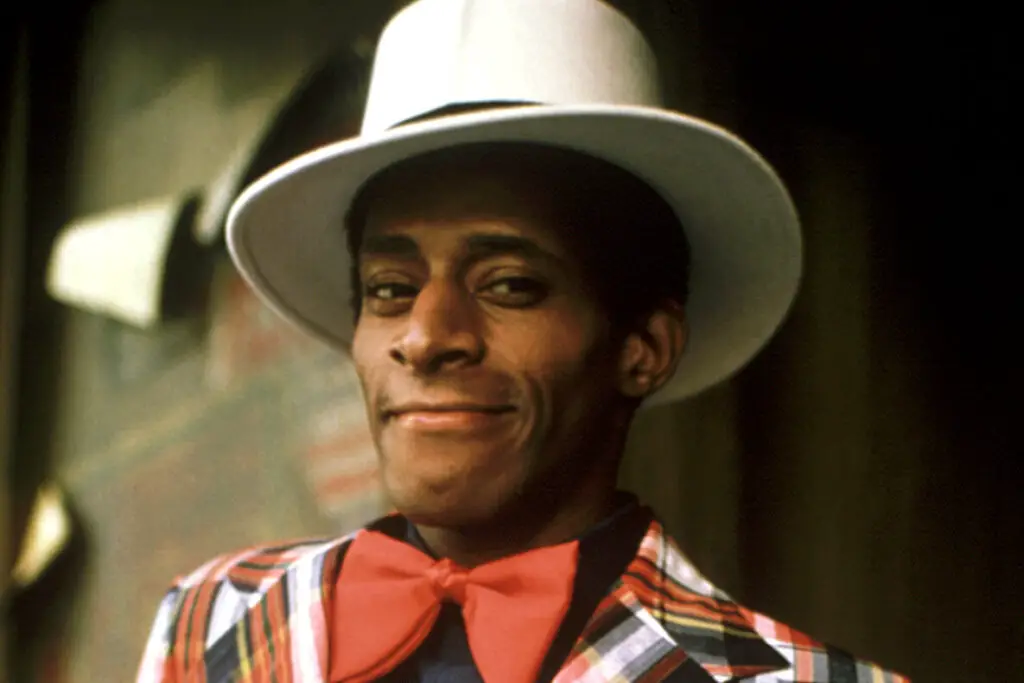
In 1975, Starsky & Hutch became famous for its fast-paced action and thrilling car chases. But it was one particular chase that became unforgettable. The moment when Starsky and Hutch, in their signature red car, narrowly escape a dangerous gang chase became one of the defining moments of the show. The high-speed thrills and the daring escapades of the two detectives quickly became one of the most talked-about aspects of the show.
What made this moment so unforgettable was how it exemplified the show’s approach to action—tight, dramatic, and always keeping viewers on the edge of their seats. The car chase scenes in Starsky & Hutch were legendary for their speed, daring, and unpredictability, leaving fans hooked and excited for the next episode. It became an iconic part of the ’70s TV landscape, cementing Starsky & Hutch as a classic of the decade.
15. The Rockford Files‘ “Jim Rockford’s Phone Call”
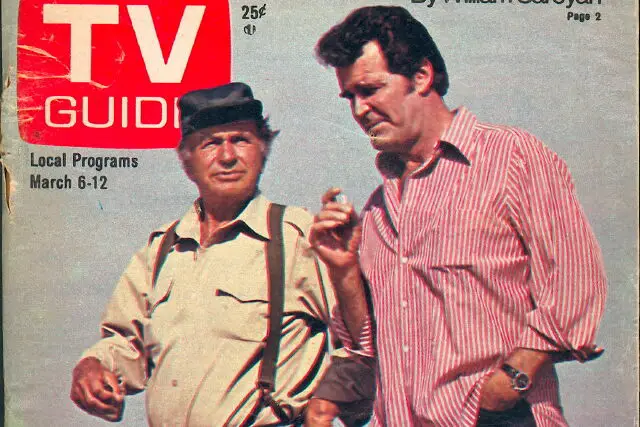
In 1974, The Rockford Files introduced audiences to Jim Rockford, a private investigator with a no-nonsense attitude. One of the most unforgettable moments from the show came when Jim made his signature phone call from the beach in almost every episode. The sound of his phone ringing, followed by his classic greeting, “This is Jim Rockford, leave a message,” became an iconic moment in TV history. It was more than just a phone call—it was a symbol of Rockford’s laid-back but determined personality.
Fans loved the authenticity of this moment, as it was so simple yet so distinctive. It was the perfect introduction to Rockford’s character, who was always a step ahead of his adversaries but still grounded in the everyday world. The phone call became a defining trait of The Rockford Files, and it remains one of the most recognizable moments from the ’70s crime genre.
16. Mork & Mindy’s “Nanoo Nanoo”
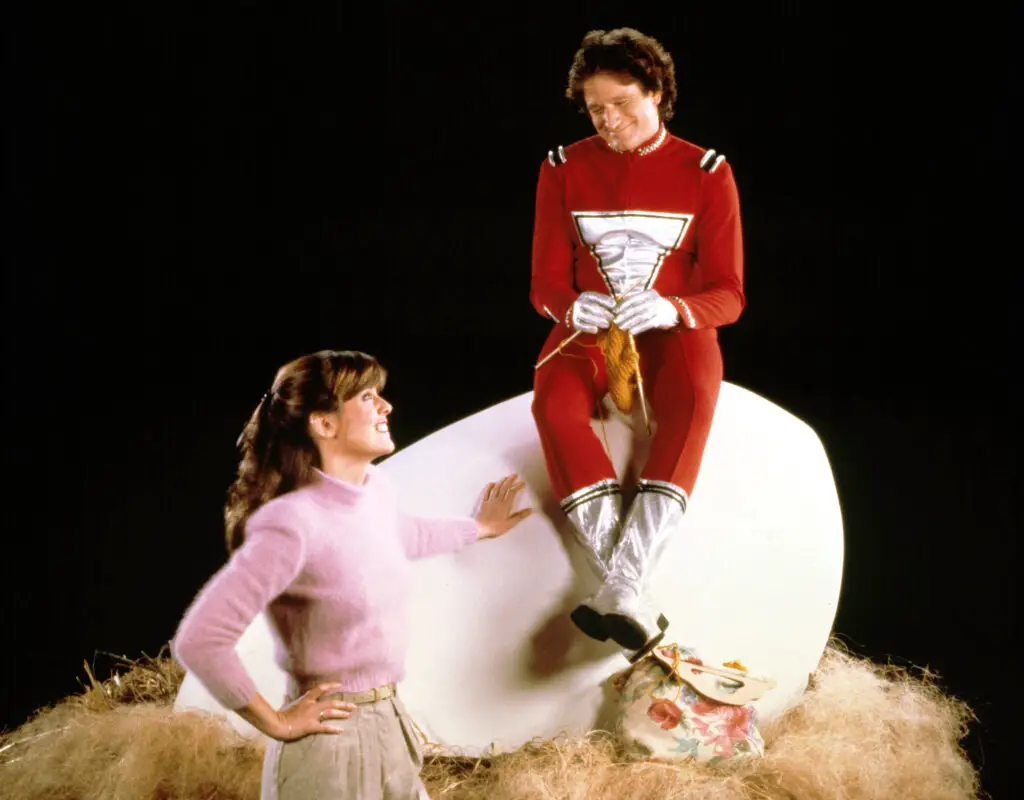
In 1978, Mork & Mindy introduced the world to Mork, the alien from the planet Ork, played by the incomparable Robin Williams. His signature greeting, “Nanoo Nanoo,” quickly became a cultural catchphrase. It wasn’t just a quirky way for Mork to say hello—it was an expression of the show’s unique humor and otherworldly charm. The way Mork interacted with Earth’s customs, often bewildered by them, added a playful and innocent touch to the character.
The “Nanoo Nanoo” moment encapsulated what made Mork & Mindy such a standout show in the late ’70s. Robin Williams’ comedic genius was on full display, and this simple gesture became a symbol of the show’s joyful absurdity. To this day, “Nanoo Nanoo” is a reminder of Williams’ larger-than-life presence on television.
17. Dallas’ “Who Shot J.R.?”
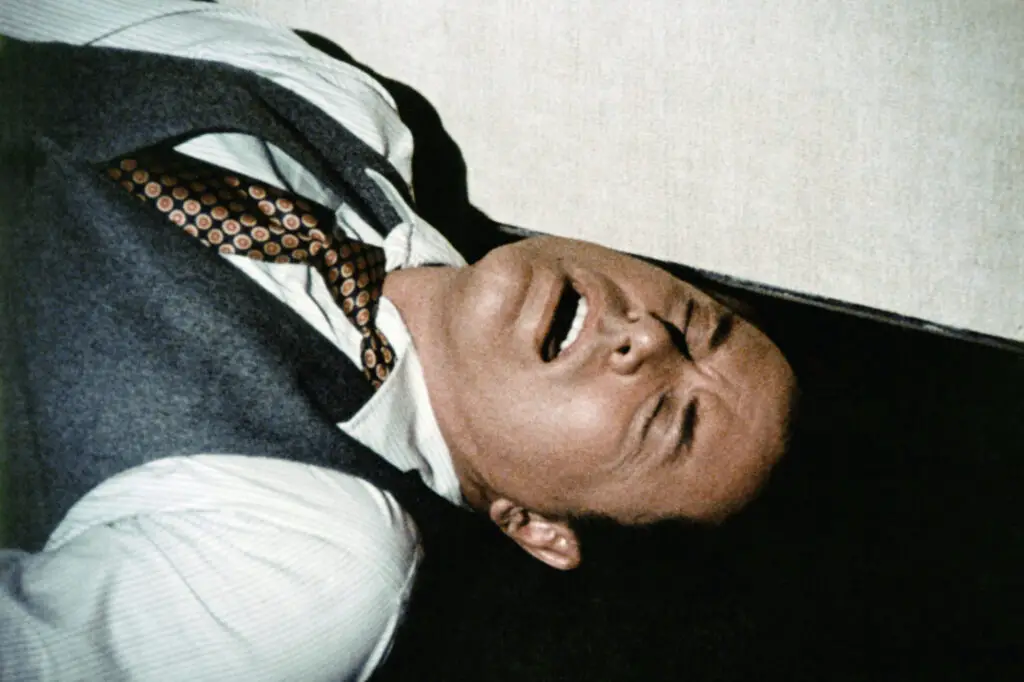
In 1980, Dallas delivered one of the most unforgettable moments in TV history: the question of “Who shot J.R.?” The cliffhanger at the end of the 1979 season left the nation hanging, eagerly waiting to find out who had shot the infamous oil tycoon. The mystery captivated audiences across the country, sparking heated debates and speculation. It wasn’t just a TV plotline—it became a cultural phenomenon.
The mystery of J.R.’s shooter dominated the pop culture conversation for months, leading to one of the most-watched episodes in TV history when the truth was finally revealed. The moment exemplified how a well-crafted cliffhanger could keep viewers hooked, setting the standard for TV drama and suspense. “Who Shot J.R.?” remains one of the most iconic questions in television history.
